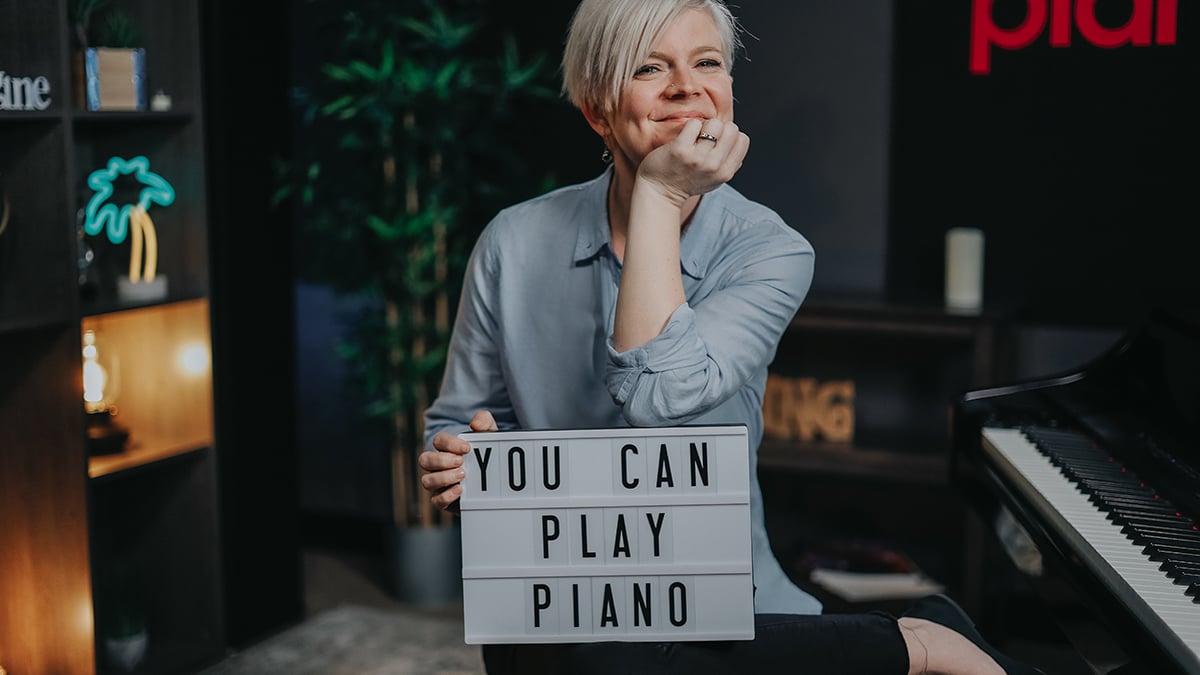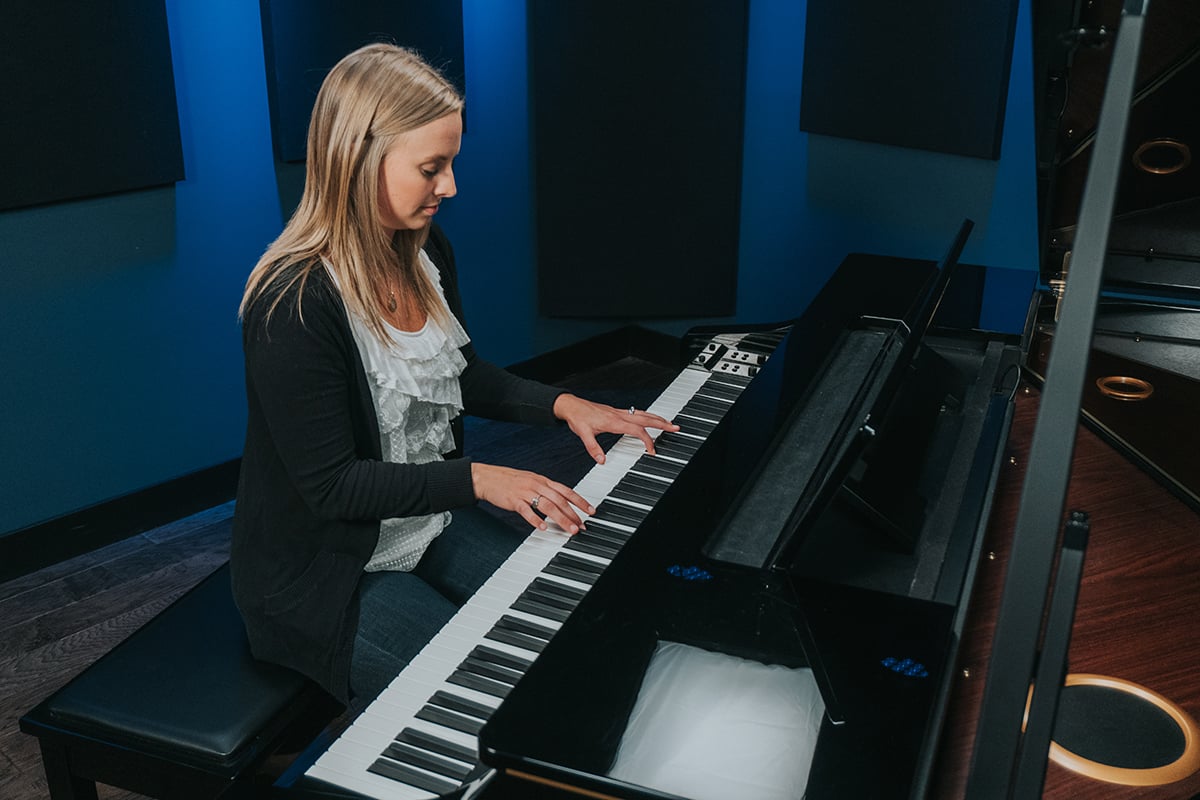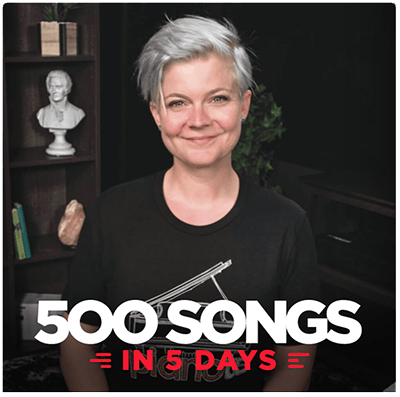What level piano player are you? Are you a beginner, or intermediate?
How do you even know?!
In my years of teaching, I’ve come up with a list of things that I think an intermediate player SHOULD be able to do.
It’s not exhaustive, but I think it’s a great start to test your skills!
You can download the entire checklist by clicking here.
I’ve broken it down into different skill areas. In this post I’m also going to provide links to relevant lessons, so if you do identify something you need to work on you’ll be able to do that easily.

Get started on the right foot (or rather, hand). Get four FREE lessons that will take you from sitting down on the piano for the first time to playing your first song.
When I say technique I’m talking about scales, arpeggios, and triads.
If you’re a beginner you might be able to play the C major scale hands together, but an intermediate player can play all of the major and relative minor scales, triads and arpeggios for all the white key signatures (C-D-E-F-G-A-B).
And speaking of minor scales, an intermediate should know the difference between the three types of minor scales.
They should also know how to identify a major or minor triad by ear and know how to build 4 types of 7th chords. They don’t have to know how to play them in inversions but should be able to play them in root position.

Technique is the foundation to piano playing. If technique has been holding you back from playing the songs you love, check out Piano Technique Made Easy with Cassi Falk. This course, free with your Pianote membership, will take you through all 12 major and minor keys as you master scales, arpeggios, chords, and more.
An intermediate player should be able to play popular chord progressions like the 1-5-6-4 progression in a variety of keys using inversions.
They should also understand what diatonic chords are and how to use them to create chord progressions.
And in those progressions, an intermediate player would be able to use fills and riffs to make the progressions sound more musical and impressive.

Understanding how chords work will give you a BIG leg up in learning how to play the piano. Knowing just a handful of chords will unlock hundreds, if not thousands of pop songs. To get started today, check out our free Chord Hacks course, or read How to Play Piano Chords.
A lot of people dread theory, but an intermediate player should have a basic understanding of theory. That means understanding how scales are built, and the different scale formulas.
They should also understand rhythm, note values and time signatures (outside of just 4/4).
Theory also means being able to read music. That means looking at simple notation and figuring out how to play it. They don’t have to be able to play it immediately, but they should know what the notes and symbols mean.
A repertoire is a list of songs that a player should have ready to go if anyone ever asks them to play. As a beginner it’s good to have at least 3 songs ready, but and intermediate should have around 10 songs that they can perform if asked.
Now, this might be difficult for a lot of people, but it’s something that I think is important, because so many times when people find out you play the piano, they will ask you to play something. You need to have something ready!
These 10 songs don’t need to be memorized, but they should be well-practiced and performance-ready.

The best way to learn music is by playing, not reading. Start off on a good note with our 500 Songs in 5 Days course pack. Free with your Pianote membership.
I’ve saved this until the end because I think it’s the most important point.
An intermediate player can play with dynamics and really make you feel something when they perform.
It’s easy to identify a beginner because they often only play at one volume, and it’s often loud.
Intermediate players are able to control the dynamics and feel of the piece and draw listeners into the emotion of the piece as well.
I’m sure there are people out there who don’t agree with me or think I’ve left something off.
So if that’s you, make sure you comment below to let me know!
Lisa Witt has been teaching piano for more than 20 years and in that time has helped hundreds of students learn to play the songs they love. Lisa received classical piano training through the Royal Conservatory of Music, but she has since embraced popular music and playing by ear in order to accompany herself and others. Learn more about Lisa.
/marketing/pianote/promos/april/banner-bg-m.webp)
We use cookies for traffic data and advertising. Cookie Policy »
/marketing/pianote/promos/april/banner-title.webp)